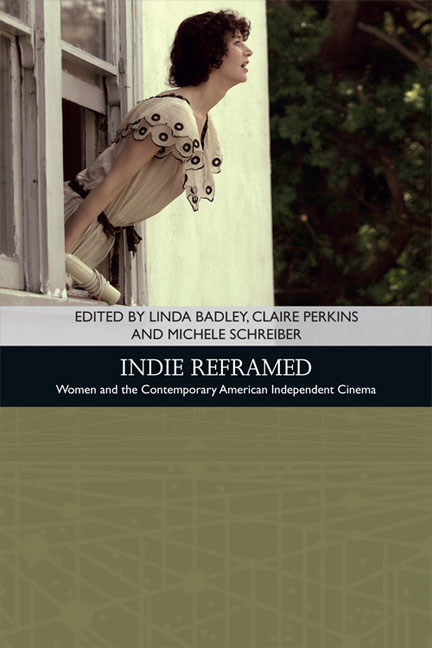13 - Sexual In-betweener/Industry In-betweener: The Career and Films of Lisa Cholodenko
Published online by Cambridge University Press: 10 November 2020
Summary
I’ve always been interested in what makes people attracted to each other. How do people negotiate their needs? And where do sexual attraction and power and intimacy come into the mix for better and not better?
Lisa Cholodenko (Spines 2010: 42)With her debut feature High Art (1998), Lisa Cholodenko achieved art-house notoriety that portended a new wave of women filmmakers who were aiming to provoke both in their dark, sexually-charged subject matter and in their troubling of industrial and critical designations such as ‘indie’, ‘feminist film’, and ‘gay cinema’. Lesbian independent filmmaking in the wake of New Queer Cinema had ventured little beyond the romantic comedies popularised by Go Fish (1994), but High Art departs radically from that film’s Do-It-Yourself aesthetic, positive images, and identity politics with its lushly-filmed yet grittily- depicted portrait of an ill-fated affair between an ambitious aspiring art critic and a heroin-addicted has-been photographer. Cholodenko’s subsequent feature, Laurel Canyon (2002), is less bleak and less identifiably queer, though it too focuses on a professionally driven young woman who experiences personal – and sexual – awakening in her encounter with an older, accomplished, but (self-)destructive woman. The arrival in 2010 of Cholodenko’s third feature, gay-themed crossover hit The Kids Are All Right, caused a stir as clamorous as had Philadelphia (Jonathan Demme, 1993) and Brokeback Mountain (Ang Lee, 2005) before it, and its comparable commercial and critical success was hailed as evident of strides in mainstream gay visibility and acceptance. The narrative, in which partners Nic (Annette Bening) and Jules (Julianne Moore) and their two teenage children find their tenuous domestic harmony threatened after meeting their sperm donor Paul (Mark Ruffalo), is autobiographically informed by Cholodenko’s mothering of a child with longtime partner Wendy Melvoin, one-half of the Wendy and Lisa duo from the musical act Prince and the Revolution. Yet Cholodenko’s collaboration on the screenplay with Stuart Blumberg, known for scripting conventional Hollywood romcoms (and a straight man, no less), raised eyebrows. Also perceived by some as a betrayal of her queer/indie roots was the film’s ostensibly homonormative promotion of bourgeois values and allegedly phallocentric sex scenes, which sparked a much-read blog-post critique by queer scholar Jack Halberstam titled ‘The Kids Aren’t Alright!’ (Halberstam 2010).
- Type
- Chapter
- Information
- Indie ReframedWomen's Filmmaking and Contemporary American Independent Cinema, pp. 221 - 238Publisher: Edinburgh University PressPrint publication year: 2017



